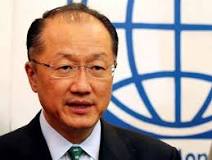The World Bank Group on Thursday reported that Nigeria ranked 152 out of a total of 157 countries surveyed in its Human Capital Index (HCI).
The HCI measures the amount of human capital that a child born today can expect to attain by age 18, given the risks of poor health and education that prevail in the country where he or she lives. It measures also each country’s distance to the frontier of complete education and full health for a child born today.
The President of the Breton Woods institution, Mr. Jim Yong Kim, while responding to media questions at the ongoing IMF/World Bank Annual Meetings in Bali, Indonesia, lamented that it was rather unfortunate that Nigeria ranked poorly in the latest HCI.
He said: “Nigeria unfortunately ranks 152 out of 157 countries. We provide quite a bit of support to Nigeria in terms of the health budget. But we feel that the overall spending on health in just far too low at 0.76 per cent of Gross Domestic Product (GDP). Also, the educational outcomes in Nigeria are very poor.”
Describing human capital as a critical driver of inclusive economic growth across national frontiers, Kim pointed out that investing in health and education was yet to get the required attention it deserves in terms of financing in many countries.
He clarified on the HDI report: “This index creates a direct line between improving outcomes in health and education, productivity, and economic growth. I hope that it drives countries to take urgent action and invest more – and more effectively – in their people.
“The bar is rising for everyone. Building human capital is critical for all countries, at all income levels, to compete in the economy of the future”, Kim stressed.






